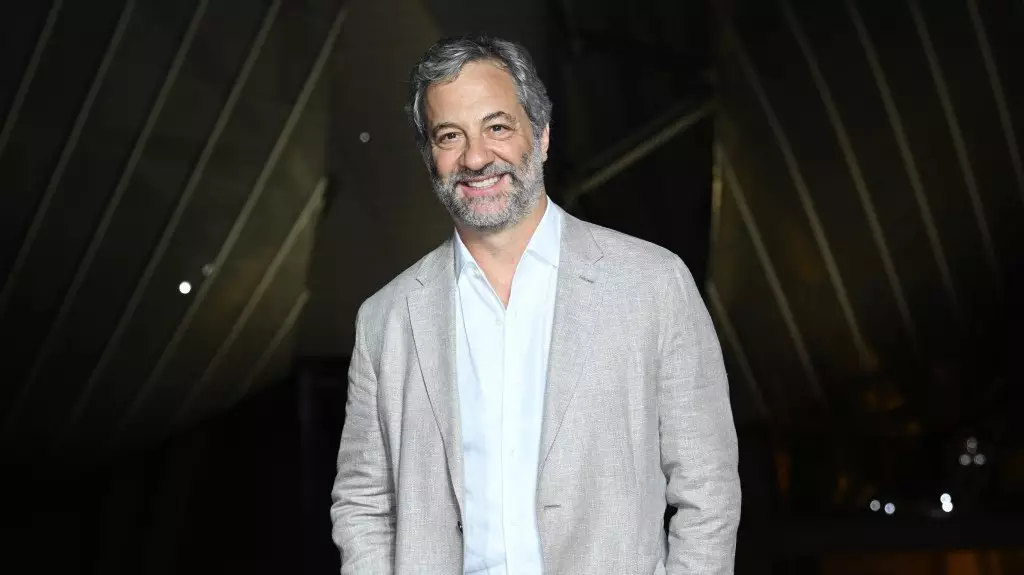Judd Apatow, a seasoned figure in the comedic and cinematic realms, has recently voiced his concerns regarding the evolving dynamics of the entertainment industry. During his appearance on the Superfly podcast hosted by Dana Carvey and David Spade, Apatow elaborated on a troubling trend that he perceives — the diminishing space for nuanced storytelling in favor of sensationalism. This shift, he argues, mirrors the current state of the newspaper industry, where sensational headlines outshine more substantive reporting. By echoing the adage “If it bleeds, it leads,” he paints a vivid picture of how today’s streaming platforms prioritize high-octane narratives over humanizing tales.
Apatow delves deeper, pointing to the algorithmic nature of content delivery that underpins modern streaming services. He notes that an overwhelming majority of the content available is either centered around “the biggest star in the world” or involves intense, often morbid storytelling tropes, such as those involving serial killers. This emphasis on thrillers and darker themes has led to a homogeneous landscape that sacrifices character development and subtlety for sheer intensity. Apatow believes that this has resulted in a creative stifling, where less explosive but equally engaging narratives struggle to find their footing in a marketplace fixated on metrics such as completion rates and viewer retention.
It’s particularly telling that Apatow refers to a scene from the show *Barry*, where a character’s project is brutally canceled due to poor algorithm performance. This moment serves as a critique of how decision-making in Hollywood has increasingly become data-driven, often at the expense of artistic integrity. The fear of viewers disengaging has heightened a culture of urgency, resulting in a tendency to overemphasize sex and violence, accordingly ringing hollow for audiences craving depth.
Wider Cultural Implications and the Role of Platforms
Carvey adds another layer to the discussion by highlighting the “hypersexual” nature of contemporary projects, referencing Nicole Kidman as a prime example. Her recent endeavors have made headlines for being exceptionally provocative, reflecting a trend where titillation often eclipses substantial storytelling. This focus on sensational content risks marginalizing quieter, more relatable narratives that could resonate deeply with audiences craving authenticity and connection in their cinematic experiences.
As alluded to by Spade, platforms like TikTok further perpetuate this clickbait phenomenon, where short, attention-grabbing content thrives. This trend has implications beyond film and television; it reflects a wider cultural shift in how stories are consumed and valued. Content creators may feel compelled to sacrifice quality for quantity to maximize viewer engagement, ultimately jeopardizing the rich tapestry of storytelling.
As Apatow continues to produce and direct, including his anticipated documentary on Mel Brooks, he advocates for a return to storytelling that celebrates the human experience in its many forms. While there is no denying the allure of riveting content, the industry’s future relies on maintaining a balance that allows for both the thrilling and the nuanced. As audiences, creators, and industry insiders redefine what they value in storytelling, it is imperative to nurture and promote stories that evoke genuine emotion rather than solely relying on shock value. The challenge lies in reshaping the narrative not just in Hollywood but across the entire entertainment ecosystem, advocating for a renaissance of authentic, human-centric storytelling.

Leave a Reply